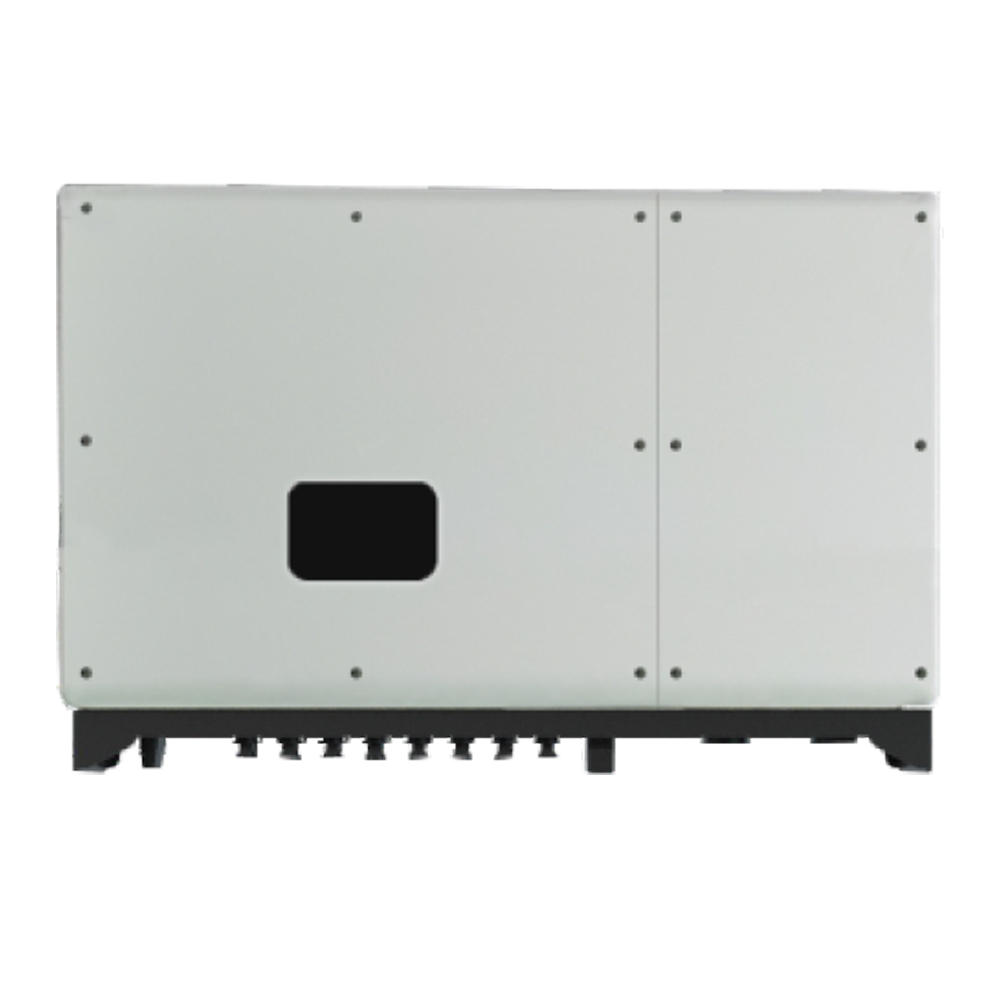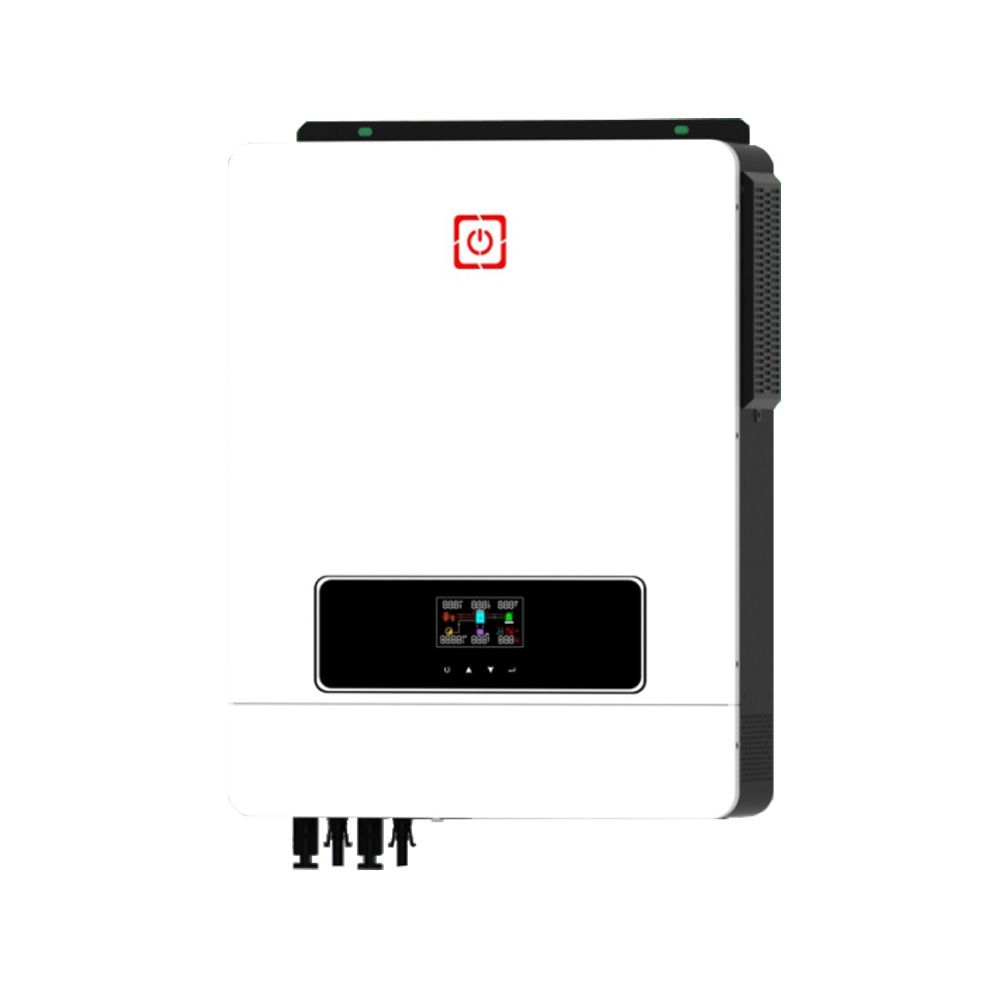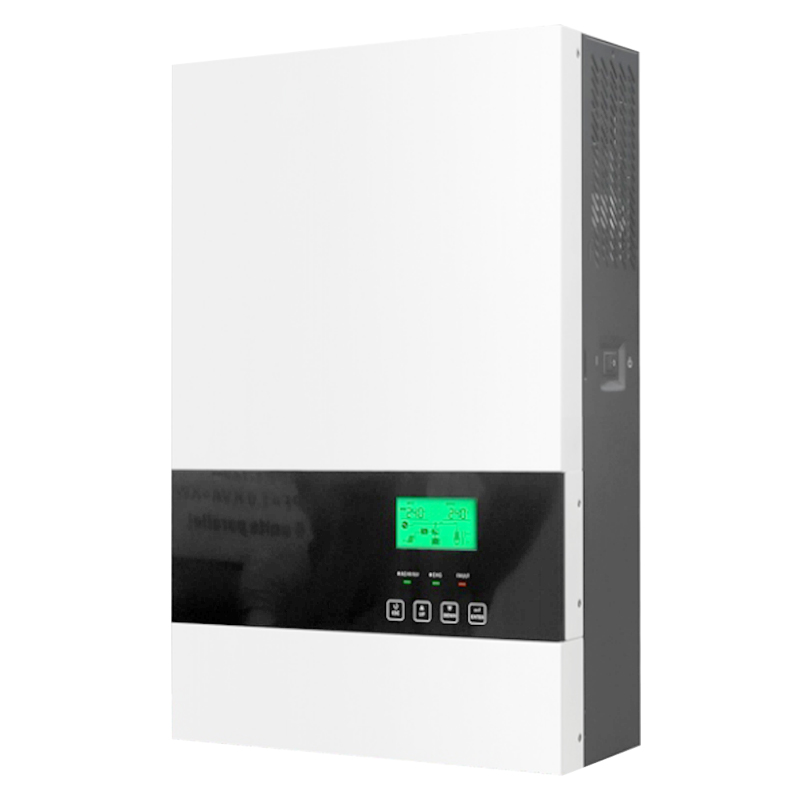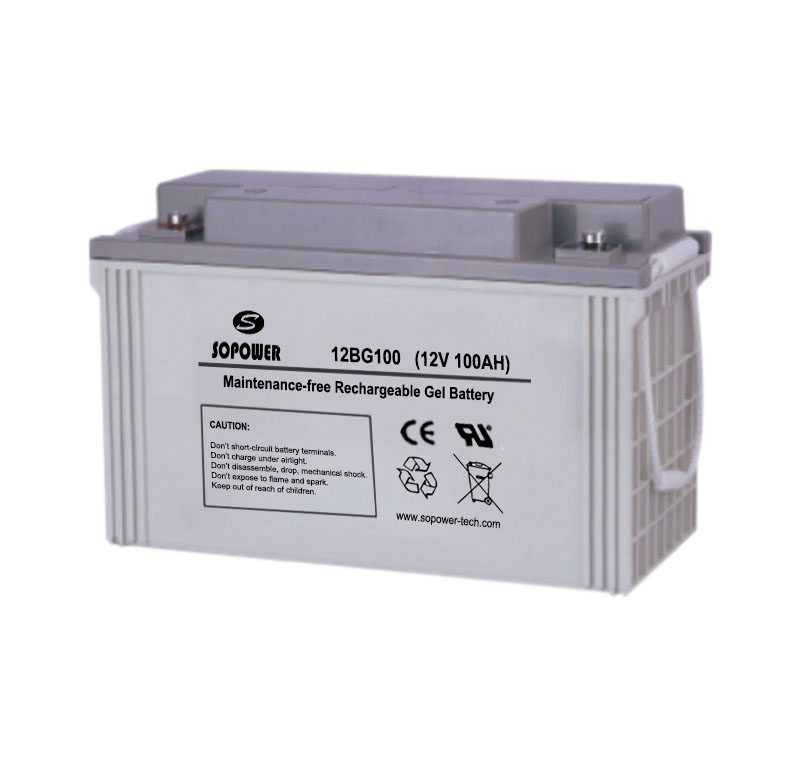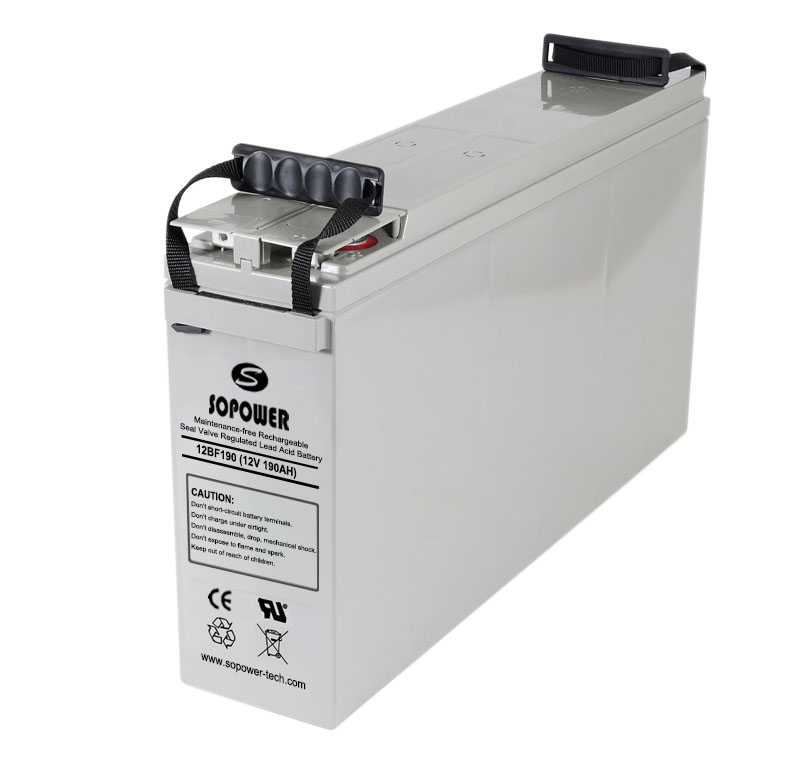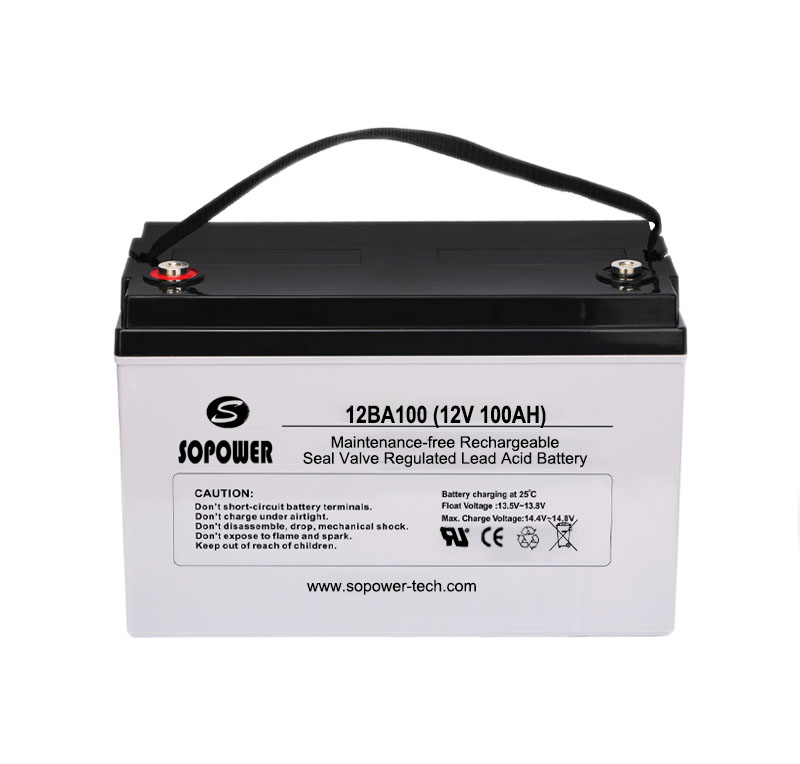Source: PV Magazine Date: 17. APRIL 2013

Will cover battery systems connected to photovoltaic installations
Could a German subsidy on energy storage replicate the German solar miracle for batteries instead?
We should find out in a few weeks.
The launch and terms of a long-threatened energy storage subsidy are due to be introduced on May 1, according to a spokesperson for bank KfW which is involved in refinancing the loans, as reported in PV Magazine. The loans come from kfW and the 30 percent subsidy on the battery system is financed by Germany's Federal Environment Ministry with a reported grant fund of $65 million. The funding commitment from the Federal Environment Ministry has not been finalized.
The energy storage system is meant to be used in tandem with distributed solar installations with storage systems developed in Germany; the funds come with a maximum size requirement of 30 kilowatts. The batteries must have a warranty of at least seven years to gain the subsidy. Another requirement is that the PV installation sends 60 percent of its capacity to the grid over the lifetime of the plant. The battery subsidies will apply retroactively when connected to solar systems installed in 2013, according to reports in PV Magazine.
Presumably, the initial battery systems will be lead-acid technology, which might give way to lithium-ion or other emerging battery formulations as prices fall.
Germany will have installed about 775 megawatts of PV in the first quarter of 2013, for a cumulative total of 33 gigawatts of solar power. Some worry that the volatility of all that distributed generation will cause the grid to behave erratically. Distributed storage can help smooth intermittent renewables.
In the U.S., SolarCity (using Tesla batteries) has made a foray into home energy storage combined with solar PV. SolarCity looks to install about 100 systems in 2013, accordingto Bloomberg. (We delved into the details of the SolarCity storage play here.) StartupStem looks to install energy storage and software to lower customer energy bills in commercial applications.
But the current price of residential energy storage is just too expensive to be installed based on purely economic arguments, except in some edge cases, absent subsidies.
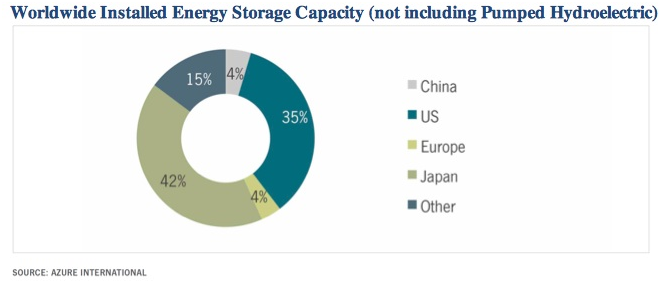
Note the relatively modest amounts of energy storage in the EU. This chart is from the Azure International/GTM Research report, China Grid-Scale Energy Storage Market 2012-2016




